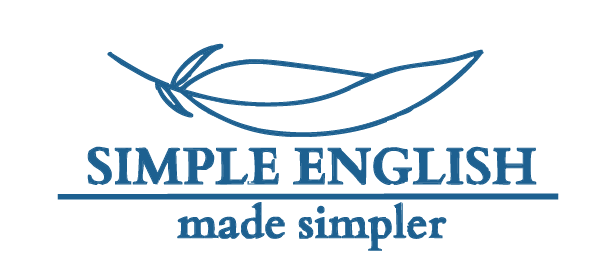
Dominar el vocabulario correcto en inglés puede hacer una gran diferencia durante una entrevista laboral. En este artículo te presentamos 50 palabras clave divididas en categorías que te ayudarán a transmitir seguridad y profesionalismo, acompañadas de ejemplos prácticos para utilizarlas con confianza.
Hablando sobre ti mismo
Este vocabulario es fundamental para presentarte claramente ante el entrevistador, destacando quién eres, qué sabes hacer y hacia dónde quieres ir profesionalmente.
- Qualifications: «I believe my qualifications make me a perfect candidate for this position.»
- Experience: «I have extensive experience in digital marketing.»
- Skills: «My strongest skills include project management and communication.»
- Strengths: «One of my key strengths is my attention to detail.»
- Weaknesses: «My biggest weakness is perfectionism, but I’m learning to balance it.»
- Background: «My academic background is in psychology.»
- Goals: «My career goal is to become a senior manager within five years.»
- Achievement: «My greatest achievement was increasing sales by 20% the last quarter.»
- Passionate: «I’m passionate about innovation and technology.»
- Ambitious: «I’m ambitious and constantly looking for new challenges.»
Habilidades y competencias
Estas palabras demuestran tus habilidades prácticas y personales que aportan valor a una empresa y que te diferencian de otros candidatos.
- Problem-solving: «I enjoy problem-solving and finding creative solutions.»
- Teamwork: «Teamwork is essential to me—I thrive working with others.»
- Leadership: «I have leadership experience managing diverse teams.»
- Adaptability: «Adaptability has helped me succeed in rapidly changing environments.»
- Communication: «Effective communication is one of my core strengths.»
- Multitasking: «I’m skilled at multitasking and managing several projects simultaneously.»
- Time management: «Excellent time management allows me to meet strict deadlines consistently.»
- Detail-oriented: «Being detail-oriented ensures high-quality results in my work.»
- Proactive: «I’m proactive in identifying potential issues before they arise.»
- Initiative: «I often take the initiative to suggest improvements.»
Vocabulario técnico laboral

Es importante entender y usar correctamente el lenguaje técnico del mundo laboral para mostrar profesionalismo y claridad al negociar aspectos clave del empleo.
- Deadline: «I always complete my projects ahead of the deadline.»
- Salary: «Can we discuss the salary range for this role?»
- Responsibility: «I’m ready to take on more responsibility in my role.»
- Promotion: «I was recently offered a promotion at my current job.»
- Training: «I recently completed advanced training in leadership skills.»
- Schedule: «I prefer a flexible work schedule.»
- Internship: «My internship at the marketing firm was highly valuable.»
- Remote work: «I have experience with remote work and virtual teams.»
- Probation period: «What is the duration of the probation period?»
- Networking: «Networking has been essential to my career growth.»
Preguntas frecuentes de entrevistas
Este vocabulario te ayudará a comprender mejor y responder con precisión a las preguntas más comunes durante una entrevista, aumentando tus posibilidades de éxito.
- Challenge: «A recent challenge I faced was managing a difficult client.»
- Handle: «I can handle high-pressure situations effectively.»
- Approach: «My approach to solving problems is analytical and structured.»
- Motivated: «I’m highly motivated by achieving measurable results.»
- Describe: «Could you describe the main responsibilities of this role?»
- Expectation: «What are your expectations for someone in this position?»
- Previous: «In my previous job, I learned valuable management skills.»
- Environment: «I thrive in a collaborative work environment.»
- Contribution: «I am eager to make a positive contribution to your team.»
- Hire: «Why should we hire you for this role?»
Frases clave para causar buena impresión

Utilizar este vocabulario no solo causa una buena impresión en entrevistas, sino que además demuestra tu capacidad para comunicarte eficazmente con futuros colegas y superiores, habilidad valiosa en cualquier entorno laboral.
- Reliable: «I’m reliable and always deliver on my promises.»
- Dependable: «You can count on me—I’m dependable and responsible.»
- Flexible: «I’m flexible and adapt quickly to new situations.»
- Positive attitude: «I approach challenges with a positive attitude.»
- Quick learner: «I’m a quick learner who adapts rapidly to new tools.»
- Eager: «I’m eager to contribute and grow professionally.»
- Result-oriented: «I’m result-oriented and focused on achieving goals.»
- Professional: «I maintain a professional demeanor at all times.»
- Opportunity: «I’m excited about the opportunity to join your team.»
- Fit: «I believe I’m a good fit for your company culture.»
Conclusión
El éxito en una entrevista en inglés depende mucho de la confianza con la que uses estas palabras claves. Para dominarlas, practica regularmente creando ejemplos relacionados con tu experiencia personal y profesional. Piensa en posibles preguntas y desarrolla diferentes respuestas.
Recuerda que cada entrevista es una oportunidad para crecer y demostrar lo que puedes aportar a una empresa.

